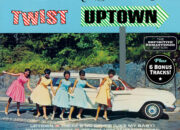In an age saturated with distractions, many individuals grapple with the enigma of concentration, particularly when it comes to the seemingly straightforward task of reading. The challenge is not uncommon: one may find themselves skimming over words, yet failing to absorb their meaning. The vexing query arises: “What should I do if I can’t concentrate on reading?” This article endeavors to explore various strategies, psychological approaches, and environmental adjustments to mitigate this pervasive issue.
To begin with, it is imperative to acknowledge the multifaceted nature of concentration. Cognitive science delineates attention into different types, notably selective attention and sustained attention. Selective attention pertains to our ability to focus on specific stimuli while disregarding others, whereas sustained attention refers to the capacity to maintain focus over an extended period. Thus, when faced with the inability to concentrate on reading, one must first diagnose the underlying cause of this impediment.
Are you navigating through stress-ridden waters, or perhaps wading through a sea of distractions that beckon with tantalizing allure? These external and internal factors can exponentially exacerbate difficulties in focus. Identifying the root cause is akin to locating the fault line before attempting any remediation. With this awareness, one can deploy a plethora of techniques suited to individual circumstances.
First and foremost, consider the environment in which you are attempting to read. An optimal reading environment is paramount. Research suggests that cluttered spaces can produce a sense of chaos, hindering concentration. Thus, an essential initial step is to curate a dedicated space devoid of clutter. This involves not only physical organization but also an auditory assessment. Ambient noise can both hinder and help depending on the individual. Some may find solace in complete silence, while others thrive in the hum of a coffee shop. Experimentation is crucial.
Furthermore, the physiological state of the reader plays a role that cannot be overlooked. Factors such as hydration, nutrition, and sleep profoundly impact cognitive function. A well-nourished body promotes a well-nourished mind. Therefore, engaging in a dialogue with one’s biology could prove beneficial. Ensuring adequate hydration, consuming balanced meals rich in omega-3 fatty acids, and securing sufficient restorative sleep can furnish you with the cognitive resilience needed for intense reading sessions.
Moreover, consider the psychology surrounding your reading material. The intrinsic motivation to read often mirrors the subject matter itself. If the material lacks appeal, concentration may falter. Seek out texts that resonate with your passions or intellectual curiosities; this engenders a natural inclination toward focus. Should you find yourself enmeshed in a text that fails to engage, do not hesitate to set it aside for another time, or substitute it with something more enthralling.
In addition to adjusting environmental and physiological factors, techniques such as the Pomodoro Technique can enhance concentration. Developed by Francesco Cirillo in the late 1980s, this technique advocates for a focused work period of 25 minutes followed by a five-minute break. This cyclical approach not only maximizes focus but also minimizes mental fatigue. During these breaks, engage in brief physical activities or mindfulness exercises to rejuvenate your cognitive faculties.
Mindfulness and meditation have garnered significant attention in recent years as vital tools for improving focus. Engaging in a short mindfulness meditation before reading can pave the way for increased clarity and concentration. Even a few minutes of focused breathing can diminish anxiety levels and refocus the mind, creating an optimal state for absorbing information. Practices such as these cultivate an awareness of one’s thoughts and emotions, ultimately allowing one to regain control over wandering attention.
Moreover, embracing the power of note-taking is an astute strategy. The act of writing not only reinforces the material but also serves as an anchor for wandering thoughts. Summarizing chapters, jotting down reflections, or even drawing diagrams can enhance cognitive engagement with the text. This tangible interaction transforms passive reading into an active dialogue with the material, amplifying retention and understanding.
Another concept worth exploring is the role of technology in the modern reading landscape. While digital media has the potential to serve as a distraction, it can also be wielded as an ally. E-readers and applications designed for reading can mitigate distractions by allowing readers to curate their reading experiences. Furthermore, features such as adjustable lighting and font size can enhance readability, catering to individual preferences and needs.
Lastly, maintaining a growth mindset is essential when addressing reading difficulties. Embrace the notion that concentration, much like any other skill, can be honed and developed over time. Adopting a perspective that views challenges as opportunities for growth can foster resilience in the face of obstacles. Acknowledging the journey of improvement encourages patience and dedication, transforming frustration into motivation.
In conclusion, the vexing question, “What should I do if I can’t concentrate on reading?” invites a myriad of thoughtful responses. By understanding the intricate dynamics of concentration, embracing environmental adjustments, and employing cognitive and psychological strategies, one can transcend the hurdles inhibiting their reading experience. In the grand narrative of intellectual exploration, developing the ability to focus is an invaluable attribute, one that fosters deeper comprehension and appreciation for the written word. Thus, the journey towards enhanced concentration becomes a rewarding quest—one that is well worth undertaking.












